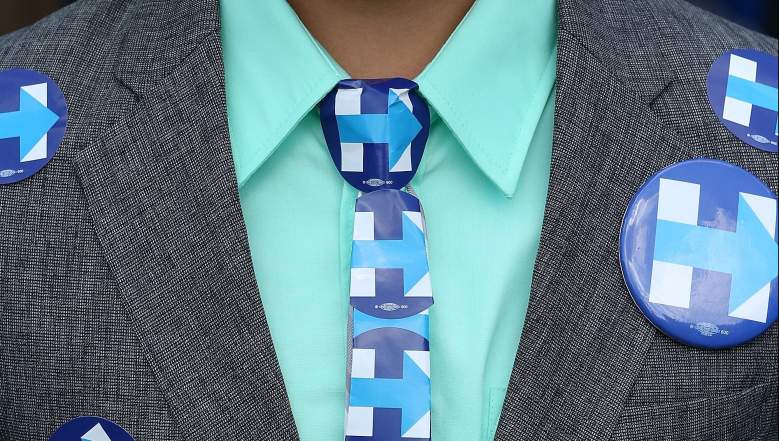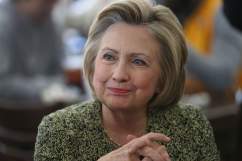
A young Clinton supporter in Indiana. (Getty)
With time running out in the 2016 primaries, it’s all coming down to the last few states. Though Hillary Clinton has a substantial lead in the primary process, Bernie Sanders has provided enough of a challenge to potentially force a contested convention, where he can swing unpledged in his favor.
Democratic delegates come in two forms. The first, pledged delegates, are awarded based on the voting results from each state primary and caucus, and are assigned proportionally to the candidate’s vote share in each state. Clinton has a significant but not insurmountable lead in these delegates:
| Pledged Delegate Count | |
| Hillary Clinton | 1,645 |
| Bernie Sanders | 1,318 |
The Clinton lead is much more significant in “superdelegates,” officially unpledged delegates, those elected officials and party insiders who are not bound to a particular candidate regardless of which way their state votes. Unofficially, these delegates lean much more strongly toward Clinton:
| Unpledged Delegate Count | |
| Hillary Clinton | 520 |
| Bernie Sanders | 39 |
This swings the total delegate count far in Clinton’s favor, and puts her not far from the simple majority needed to win the nomination, with several favorable states left to vote:
| Total Delegate Count | 2,383 Needed |
| Hillary Clinton | 2,165 |
| Bernie Sanders | 1,357 |
It’s important to note, though, that superdelegate votes don’t become official until the convention. If Sanders can keep the race close throughout the remainder of the primary season, he’ll have at least the opportunity to sway the superdelegates once the party convenes.
